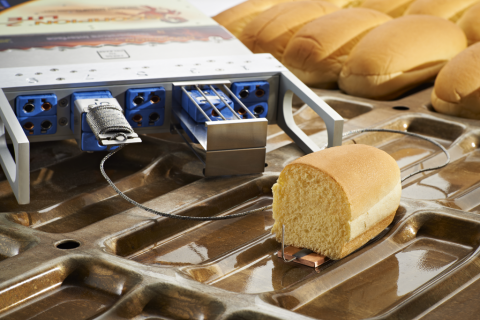Building a thermal profile that fulfills the requirements of an oven Kill Step study is a challenging process. Rather than rush the analysis, ensuring you’re compiling as much of the correct information as possible first provides the collateral needed to accurately measure whether or not your commercial ovens are achieving the Kill Step in the first place. If your ovens aren’t operating satisfactorily, taking the time to perform an oven Kill Step study and use the results for your thermal profile ensures that you can apply these specifications to your lines, satisfying regulatory compliance as efficiently as possible.
Collecting the raw data comes first, and no one provides the right solutions better than Reading Thermal. Our work developing the SCORPION® 2 Profiling System has made it a staple in the baking industry. Using a series of Data Loggers, Smart Sensors, and analysis software, we make sure that you’re able to correctly identify the conditions of your ovens and determine whether they’re performing adequately to ensure food safety, product consistency, and regulatory compliance with the FSMA and FDA.
Kill Step Validation Through Thermal Profiling
One of the critical steps in manufacturing a product that’s safe for consumption is creating an environment that destroys any harmful bacteria. In order to meet these important safety obligations, you need a precise thermal profile of your commercial ovens in order to standardize conditions, adjust abnormalities, and remediate issues that result in inferior, unsafe products. This process, known as Kill Step validation, requires specialized equipment and experience to perform properly.
At Reading Thermal, we’ve developed the SCORPION® 2 Profiling System to help our customers meet these essential safety obligations. Using a combination of Data Loggers and Smart Sensors to record data from your ovens in real-time, our systems provide comprehensive thermal profile data that you can use to accurately measure whether or not your Kill Step is being performed effectively.
To achieve this, all data compiled within the SCORPION® 2 Profiling System is downloaded to a PC running our proprietary analysis software, the SCORPION® Software Version 8 (SV8). Our software analyzes the data collected from the process. It calculates the Kill Step to ensure you’re meeting expected parameters, allowing you to make adjustments before safety failures impact production and compliance standards.
Utilizing Smart Sensors for Optimal Data Compilation
The SCORPION® 2 Data Logger can hold several different thermal profiles that can then be analyzed and processed into precise data reports. The reports, however, are only as valuable as the data collected. Reading Thermal produces a selection of sensitive Smart Sensors designed to accurately measure specific oven parameters for a detailed and complete thermal profile of your commercial ovens. These Smart Sensors include:
- Temperature Sensor Array
- Digital Air Velocity Sensor Array
- Heat Flux Sensor
- Digital Humidity Sensor
- R&D Smart Sensor™
- Magnetic Temperature Sensor Array
- Digital Temp+Airflow Sensor Array
- Pan+Dough Probe
Humidity, heat flux, air velocity, and other forms of heat transfer each impact the baking process in unique and different ways. Any changes in the oven environments or variables can conceivably impact the quality of your baked goods, impairing the efficacy of your oven Kill Step study and resulting in subpar quality products unsafe for consumption. Reading Thermal’s innovative solutions allow you to identify and measure these variables in order to maintain the highest levels of food safety, product consistency, and regulatory compliance. If you’re interested in our services, call us at (610) 678-5890 Ext. 2, or contact us online for more details about our innovative products.

